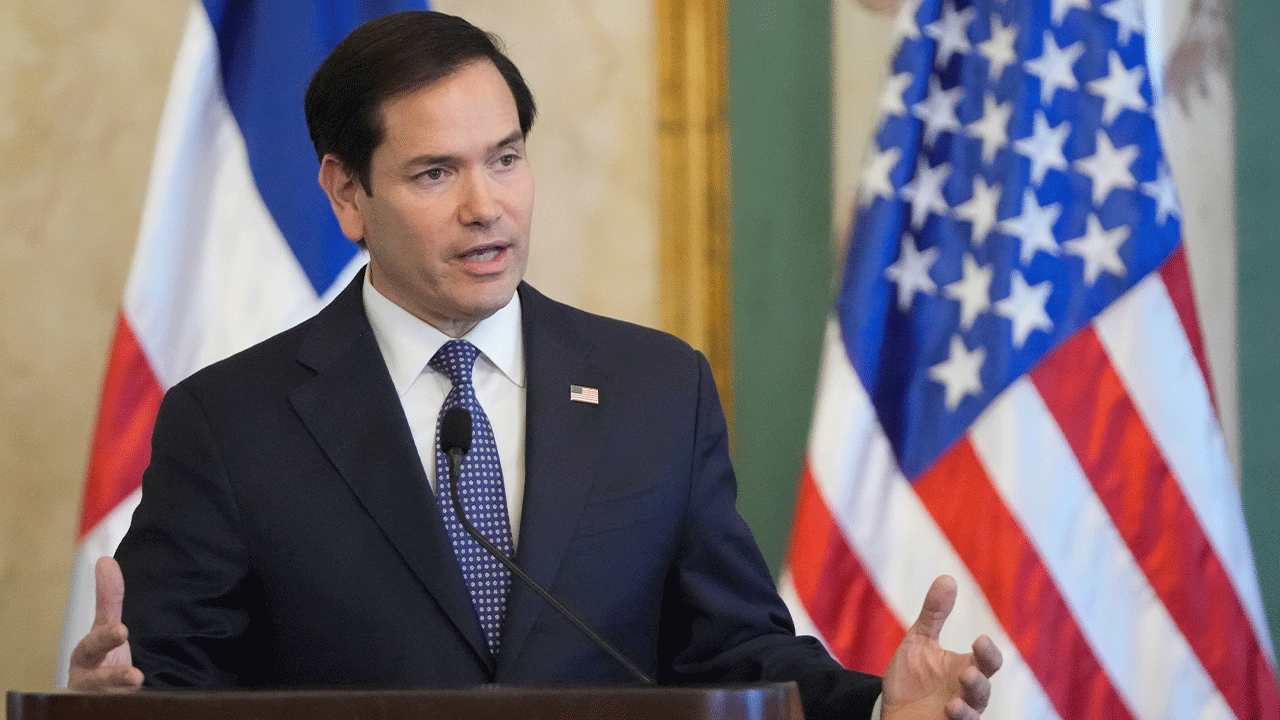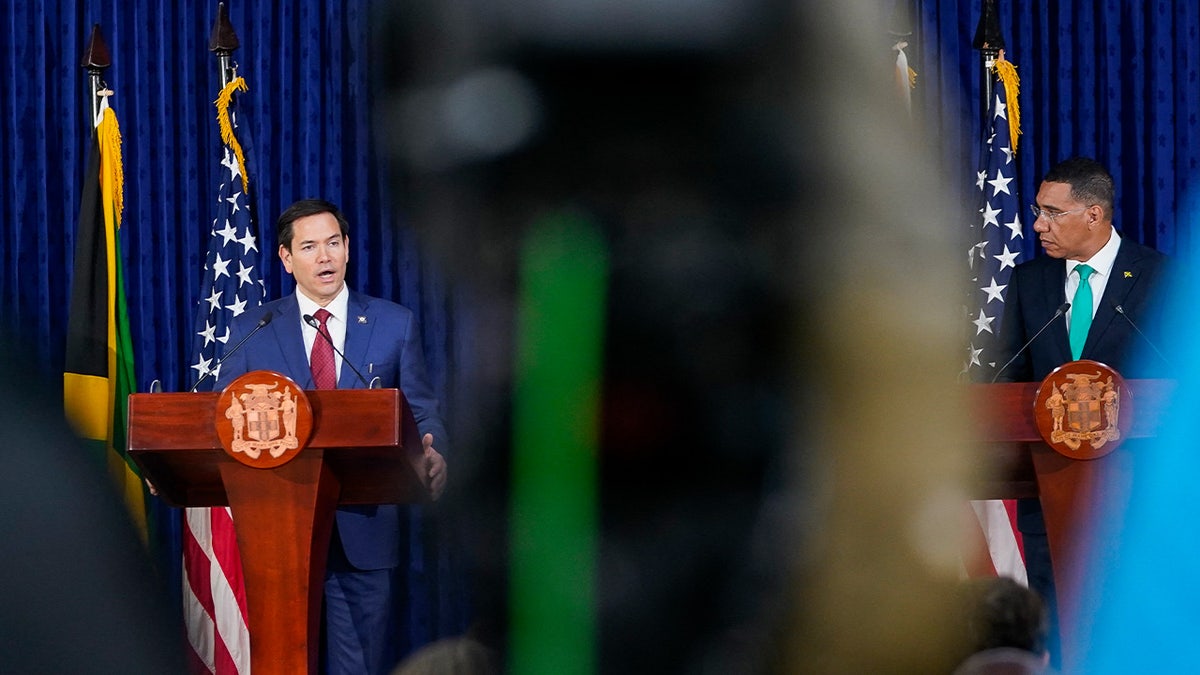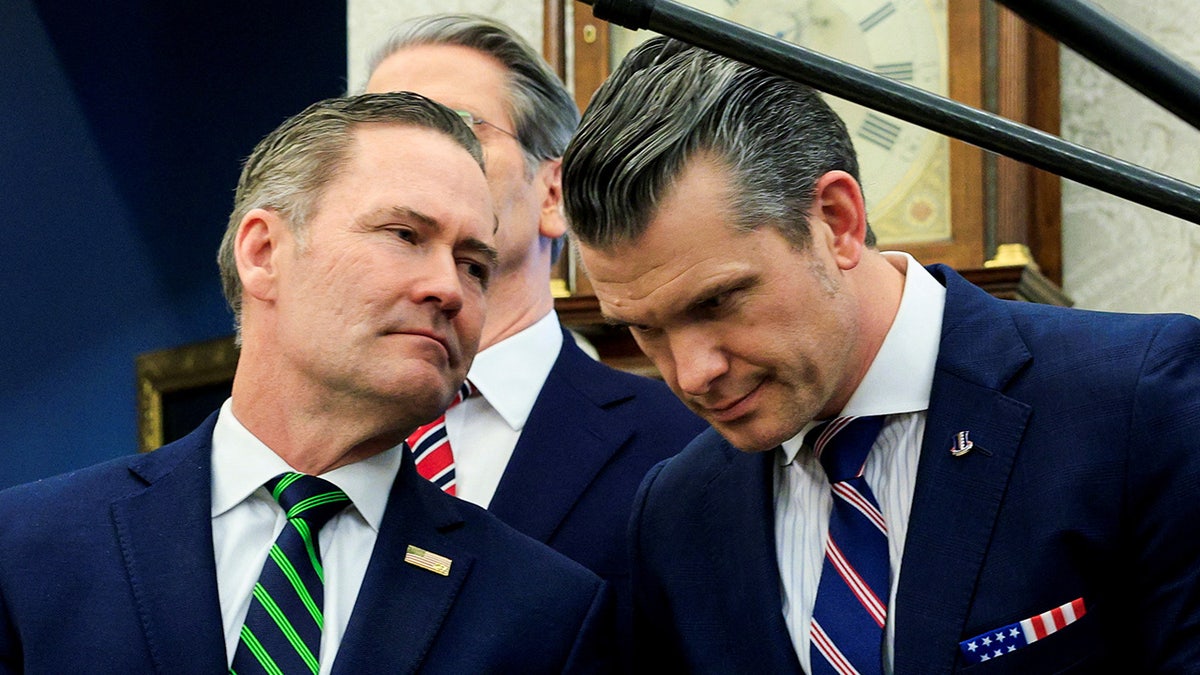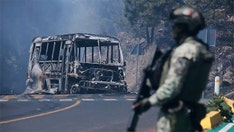
Rubio breaks silence on leaked Signal chat: ‘Someone made a big mistake’
Secretary of State Marco Rubio for the first time, on Wednesday addressed the Signal-chat controversy and conceded that “someone made a big mistake” when a journalist from the Atlantic was added to Signal text chain that included Washington’s top national security heads.
“This thing was set up for purposes of coordinating,” Rubio told reporters from Jamaica, noting the point of the text exchange carried out on the encrypted messaging application was purely so officials knew how to communicate with their various counterparts.
But the revelation that potentially classified information was exchanged on a site that has been the target of Russian hackers, and that the chain included an editor from the Atlantic, sent shockwaves globally – though the Pentagon maintains that no classified intelligence was exchanged in the messages.

ATLANTIC REPORTER PUBLISHES MORE TEXTS ABOUT ATTACK ON HOUTHI TARGETS
“Obviously, someone made a mistake. Someone made a big mistake and added a journalist,” Rubio said. “Nothing against journalists. But you ain’t supposed to be on that thing.”
“I contributed to it twice. I identified my point of contact, which is my chief of staff, and then later on, I think three hours after the White House’s official announcements had been made, I congratulated the members of the team,” he continued.
Rubio said that though the information was not technically classified nor did it at “any point threaten the operation of the lives of our servicemen,” the information was “not intended to be divulged” and the White House was investigating the matter.
President Donald Trump has downplayed the severity of the lapse, noting it was “the only glitch in two months” his administration has faced and told NBC News the debacle “turned out not to be a serious one.”
National security advisor Mike Waltz, who reportedly set up the text chain and accidentally added the Atlantic editor, told Fox News’ Laura Ingraham that he took “full responsibility” for the “embarrassing” mishap.
Similarly, Director of National Intelligence Tulsi Gabbard on Wednesday told the House Intelligence Committee it was a “mistake” to include a reporter in a text group that included “candid and sensitive” information.
She also maintained that the texts did not include any classified information while testifying in front of senators on Tuesday.

TRUMP ADMIN DECLARES THE ATLANTIC’S SIGNAL ARTICLE A ‘HOAX’ AFTER IT DROPS ‘WAR PLANS’ RHETORIC
Debate between the Atlantic’s reporting and the White House erupted after the Trump administration and Pentagon said that no “war planning” information was shared.
Waltz in a Wednesday tweet said, “No locations. No sources & methods. NO WAR PLANS. Foreign partners had already been notified that strikes were imminent.”
The Atlantic maintains the texts did include “attack plans.”
“TEAM UPDATE: TIME NOW (1144et): Weather is FAVORABLE. Just CONFIRMED w/CENTCOM we are a GO for mission launch. 1215et: F-18s LAUNCH (1st strike package). 1345: ‘Trigger Based’ F-18 1st Strike Window Starts (Target Terrorist is @ his Known Location so SHOULD BE ON TIME – also, Strike Drones Launch (MQ-9s),” Secretary of Defense Pete Hegseth reportedly wrote in the text exchange released Wednesday by The Atlantic.
“1410: More F-18s LAUNCH (2nd strike package). 1415: Strike Drones on Target (THIS IS WHEN THE FIRST BOMBS WILL DEFINITELY DROP, pending earlier ‘Trigger Based’ targets). 1536 F-18 2nd Strike Starts – also, first sea-based Tomahawks launched,” he later added.
CLICK HERE TO GET THE FOX NEWS APP
But Rubio, in alignment with other administration officials, pointed to the Pentagon’s assessment on whether its leader released classified information and said, “They made very clear that [the texts] didn’t put in danger anyone’s life or the mission at the time.
“There was no intelligence information,” Rubio added.



